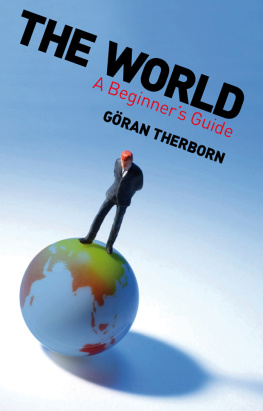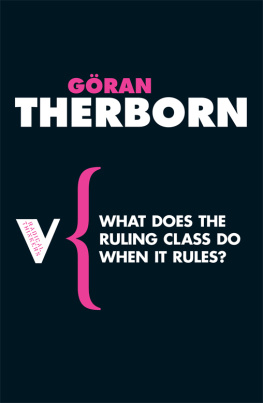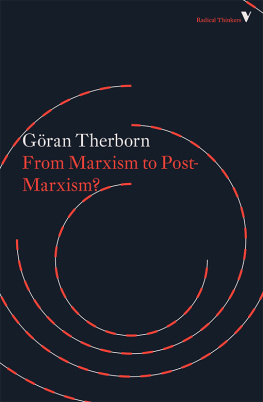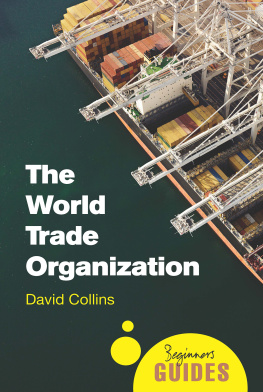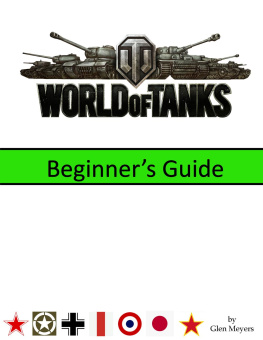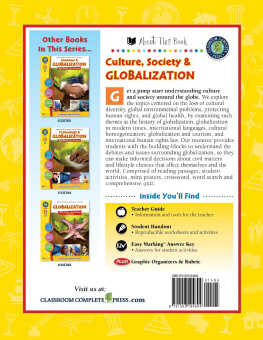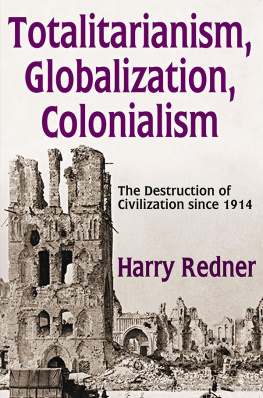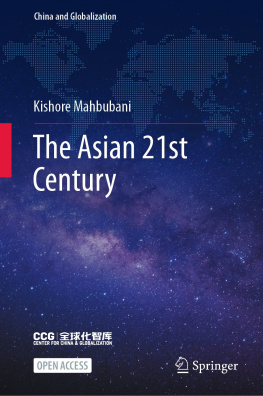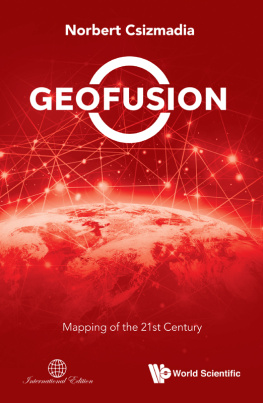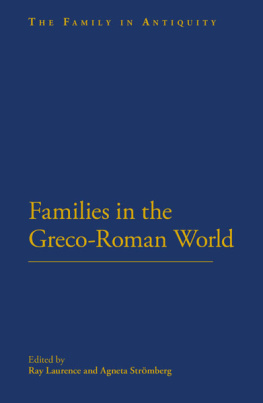The right of Gran Therborn to be identified as Author of this Work has been asserted in accordance with the UK Copyright, Designs and Patents Act 1988.
All rights reserved. Except for the quotation of short passages for the purpose of criticism and review, no part of this publication may be reproduced, stored in a retrieval system, or transmitted, in any form or by any means, electronic, mechanical, photocopying, recording or otherwise, without the prior permission of the publisher.
A catalogue record for this book is available from the British Library.
The publisher has used its best endeavours to ensure that the URLs for external websites referred to in this book are correct and active at the time of going to press. However, the publisher has no responsibility for the websites and can make no guarantee that a site will remain live or that the content is or will remain appropriate.
Every effort has been made to trace all copyright holders, but if any have been inadvertently overlooked the publisher will be pleased to include any necessary credits in any subsequent reprint or edition.
List of Tables and Maps
LIST OF TABLES
2.1 The world stock of international migrants, 2005, by continents
2.2 The worlds main cultural exporters, 2002
2.3 National population growth, 20008
2.4 Income inequality on the planet, in nations and in cities, mid 2000s
3.1 The most populous states of the world, 2008
3.2 The largest countries
3.3 The worlds largest economies: gross national income, 2008
3.4 The most prosperous countries and the income of big countries, 2008
3.5 The worlds ten largest corporations, 2009
3.6 Market capitalization shares among major countries, 2009
3.7 A global urban hierarchy of business services, 2000, 2008
3.8 Collective bargaining coverage, 2007
4.1 Class, ethnicity/race, and nation in male life expectancy at birth, early/mid-2000s
4.2 Especially important values in children
4.3 Urbanization of major countries in the 2000s
4.4 Work in regions of the world, 2008
4.5 Status at work in regions of the world, 2006
4.6 Popular classes in China and India in the mid-2000s
4.7 Working for poverty in the world, 2008
4.8 Income groups of the world, c .2005
4.9 Male labour force participation among the 65 + age group, 2005
4.10 Relative poverty among adults and old people, mid-2000s
4.11 Elderly household structures in the world, c .2000
LIST OF MAPS
Families of African Languages
Muslim Arab Conquests, 632750 CE
Extension of Indic Civilization
Pathways to Modernity
PROLOGUE: IN THE BEGINNING THERE IS
Most of us are beginners on the planetary terrain of humankind. We are much more familiar with our own country, occasionally with our own continental region, be it Africa, Europe, Latin America, North America or a part of Asia, but rarely all of it. And each and all of us are beginners in the twenty-first century, a century which promises at least one thing that it will be very different from the past one. Therefore, this is a beginners guide, written for all those of us who are curious about this world, those of us who do not already know everything we want to know, who do not know everything we need to know about the evil, the good and the salvation of this world. On offer is not a primary of mainstream wisdom, it is an individual scholars vision, coming out of half a century of social study and carried by his personal passion for human freedom and equality, and for empirical evidence.
In this book, you will find a sociocultural geological map of the world, a compass outline of the fundamental drives of human society and a specification of how they operate in the world today, a picture of the current world stage with its major actors. You will be invited to a worldwide human life-course journey, from birth to after-life. In another sense, this is also a guide of beginning, of snapshots never shown before (outside my Cambridge classrooms), although pixelled together from the vast archives of human research and experience.
This is a guide to the world after the stardust of globalization has settled, when the global vista is clearing up. What is opening up then is a new space of social imagination, no longer just national, no longer the North Atlantic region writ large as the universe, of a first or second, solid or liquid modernity, or of postmodernity. It is a finite planet of enormous variety, interdependent and intercommunicating. This new world is a world of plural civilizations, each with its living history, not the binary one of yesterdays North Atlantic leaders putting (our) civilization against the barbarians threatening it. It is a world of emerging powers and re-emerging cultures, and not just one of global markets, a world of alternative possibilities and of different life-courses.
Intellectually, this may the hour of global sociology, taken as scholarship, with its sensitivity to variety and limitations as well as to connectivity, and its refraining from policy pontificating. Half a century ago, I entered university, in Lund in Sweden, with a view to studying politics and economics, but in the process I learnt about sociology, as a more scientific approach, which may have reflected local circumstances more than a universal truth. Later on, in the Netherlands, I had a chair of political science, and political economy has always been prominent on my mind, although my favourite scholarly writers have mostly been historians, models of erudition-cum-style. Nevertheless, I think sociology offers the best vantage-point from which to comprehend the world as a whole, the past and the contemporary together. It is wide open to different expertise and disciplines, itself pluralistic, driven by an unbound, non-paradigmatic curiosity, and by an ambition of connecting as much evidence, as much human experience, as possible.
However, after all, academic disciplines are important only within the small compounds of academia, and this book is concerned with the world outside. It is written by a scholar-citizen to fellow citizens of the world. Suddenly, besides everything else we are, we have become fellow residents of a planet and members of humanity.
Finally, a word of thanks. I am a craftsman sociologist, neither an armchair theorist nor a research manager. Most of the empirical evidence on which this book is based I have dug out with my own hands, voraciously and gratefully picking up fruits from institutional data collectors as well as from scholarly colleagues of many disciplines. But I thankfully acknowledge the assistance of my student Maruta Herding on cultural exchange. I further want to thank all my students at Cambridge for a most challenging and stimulating teaching experience, and for intercultural learning. My editor and colleague, Professor John Thompson, is also one of my creditors, for his sharp critical acumen as well as for his generous support.
Cambridge, England / Ljungbyholm, Sweden
INTRODUCTION: HUMANKIND AND ITS WORLD
Human society and human history can only be grasped by their contradictions. The twentieth century was homicidal, the worst since the sixteenth century and the European conquest of the Americas as well as the peak of human net population growth. It produced the worst genocidal racism of human history, and it left us with a legacy of an awareness of one humankind existing in a common, finite world.

